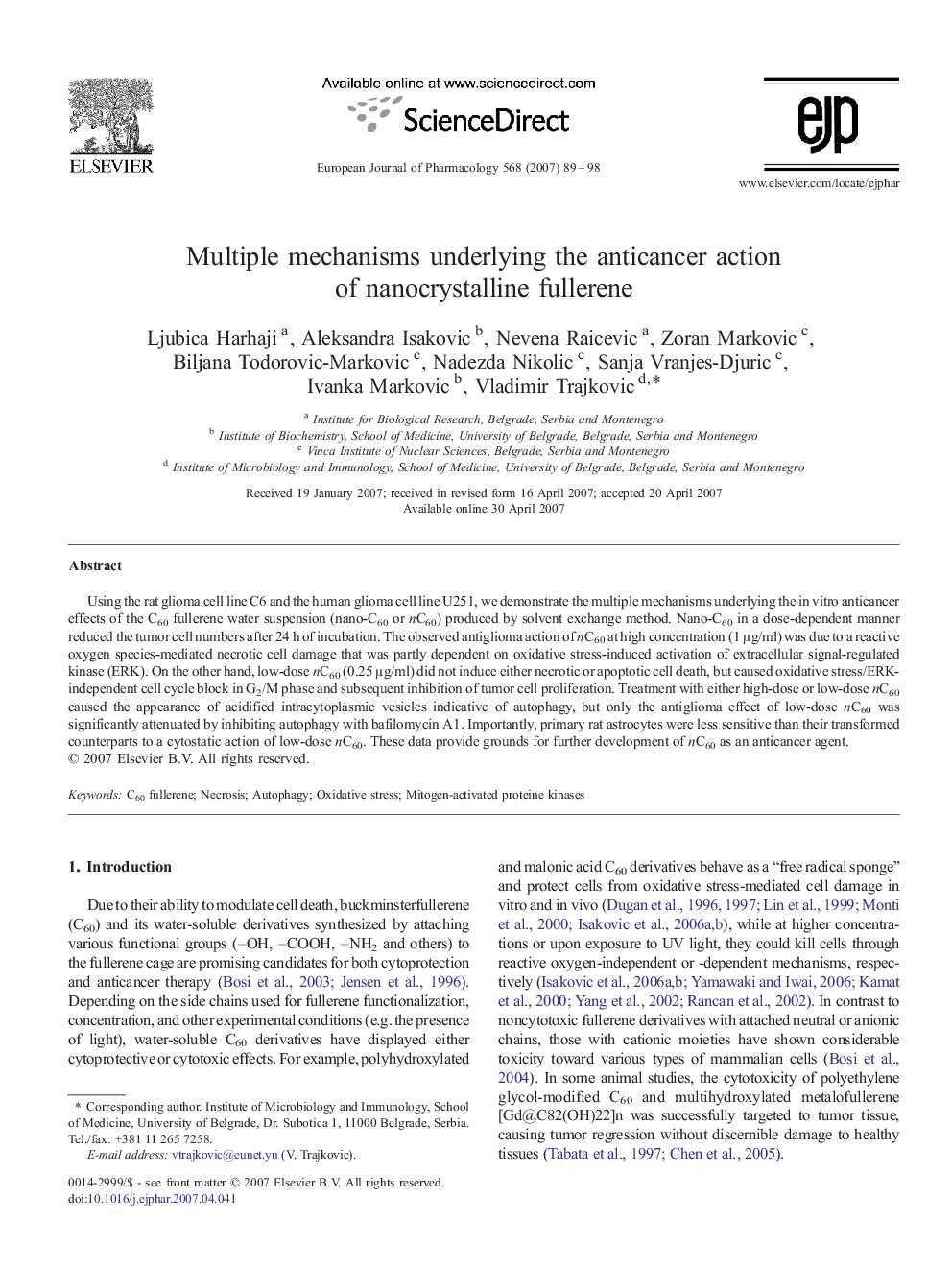| کد مقاله | کد نشریه | سال انتشار | مقاله انگلیسی | نسخه تمام متن |
|---|---|---|---|---|
| 2535996 | 1559139 | 2007 | 10 صفحه PDF | دانلود رایگان |

Using the rat glioma cell line C6 and the human glioma cell line U251, we demonstrate the multiple mechanisms underlying the in vitro anticancer effects of the C60 fullerene water suspension (nano-C60 or nC60) produced by solvent exchange method. Nano-C60 in a dose-dependent manner reduced the tumor cell numbers after 24 h of incubation. The observed antiglioma action of nC60 at high concentration (1 μg/ml) was due to a reactive oxygen species-mediated necrotic cell damage that was partly dependent on oxidative stress-induced activation of extracellular signal-regulated kinase (ERK). On the other hand, low-dose nC60 (0.25 μg/ml) did not induce either necrotic or apoptotic cell death, but caused oxidative stress/ERK-independent cell cycle block in G2/M phase and subsequent inhibition of tumor cell proliferation. Treatment with either high-dose or low-dose nC60 caused the appearance of acidified intracytoplasmic vesicles indicative of autophagy, but only the antiglioma effect of low-dose nC60 was significantly attenuated by inhibiting autophagy with bafilomycin A1. Importantly, primary rat astrocytes were less sensitive than their transformed counterparts to a cytostatic action of low-dose nC60. These data provide grounds for further development of nC60 as an anticancer agent.
Journal: European Journal of Pharmacology - Volume 568, Issues 1–3, 30 July 2007, Pages 89–98